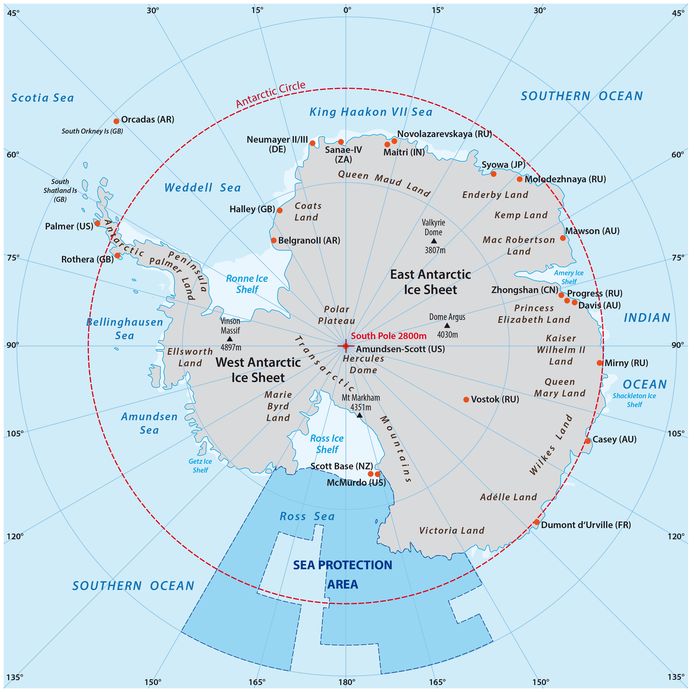According to new scientific research, the melting of West Antarctica’s ice shelves is bound to increase in the coming decades. This isn’t good news, because these ice shelves play a crucial role in holding back the glaciers behind them. When ice shelves disappear, more ice flows from the glaciers into the oceans. This means that sea level rise may be greater than previously expected.
What does the study of scientists show?
Scientists warn that sea levels may be rising faster than previously thought. This is clear from a new study It was published earlier this week in the journal Nature. The reason for this is the increasing melting of the ice shelves in West Antarctica, which is blocking the glaciers. “It appears we may have lost control of the melting of the West Antarctic ice shelf in the 21st century,” said lead author Caitlin Naughton from the British Antarctic Survey. The massive ice shelf in West Antarctica may be approaching a tipping point.
Read more under social media message
In 2021, the Intergovernmental Panel on Climate Change estimated average global sea level rise at between 0.28 and 1.01 meters by 2100, stating that larger increases were possible due to ice shelf-related processes. It seems that this fear has now become a reality.
Why are these ice shelves so important?
Antarctica contains enough ice to raise global sea levels by about 58 meters if it melted completely. Fortunately, most of that is in East Antarctica, which has remained relatively stable in recent years. But a large portion, enough to raise sea levels by about 5 metres, lies in West Antarctica. The situation there is less stable.
In West Antarctica, many glaciers extend above the surface of the ocean, where ice floats and forms so-called ice shelves. These play a crucial role in holding back the ice behind them. But the melting of ice shelves by warm ocean water reduces this protective effect, causing the glaciers behind them to accelerate.
Read more below the picture

The study shows that the Amundsen Sea, off the coast of West Antarctica, is expected to warm at a rate three times faster than the historical rate during the rest of this century. This causes the ice shelves to melt much faster. The study is also worrying because it shows that this will happen even in the most favorable climate scenarios. More research is still needed to increase confidence in their conclusions, as other factors such as snowfall, surface melt and glacier flow speed also affect how the ice shelf responds to global warming.
The study’s authors stress that their findings are not a reason to give up. Measures to slow ice loss by reducing greenhouse gas emissions are critical to give us time to prepare and adapt to rising sea levels. The study should serve as a warning, a “wake-up call” to avoid other serious climate impacts, including the melting of the East Antarctic ice shelf. This way we can still save the rest of the Antarctic ice shelf, which could cause a tenfold increase in sea level.
The former Mecca of summer skiing, it’s now barely the size of a park: Alpe d’Huez is officially losing its glacier
Sea ice has not been this low in Antarctica since measurements began: ‘Antarctica is no longer sensitive to climate change’ (+)
Earth is getting darker and that’s not good news: ‘Additional warming due to reduced reflectivity of sunlight’
Free unlimited access to Showbytes? Which can!
Log in or create an account and never miss a thing from the stars.

“Creator. Award-winning problem solver. Music evangelist. Incurable introvert.”







More Stories
British military spy satellite launched – Business AM
Alarming decline in the Caspian Sea
Lithuania begins construction of military base for German forces